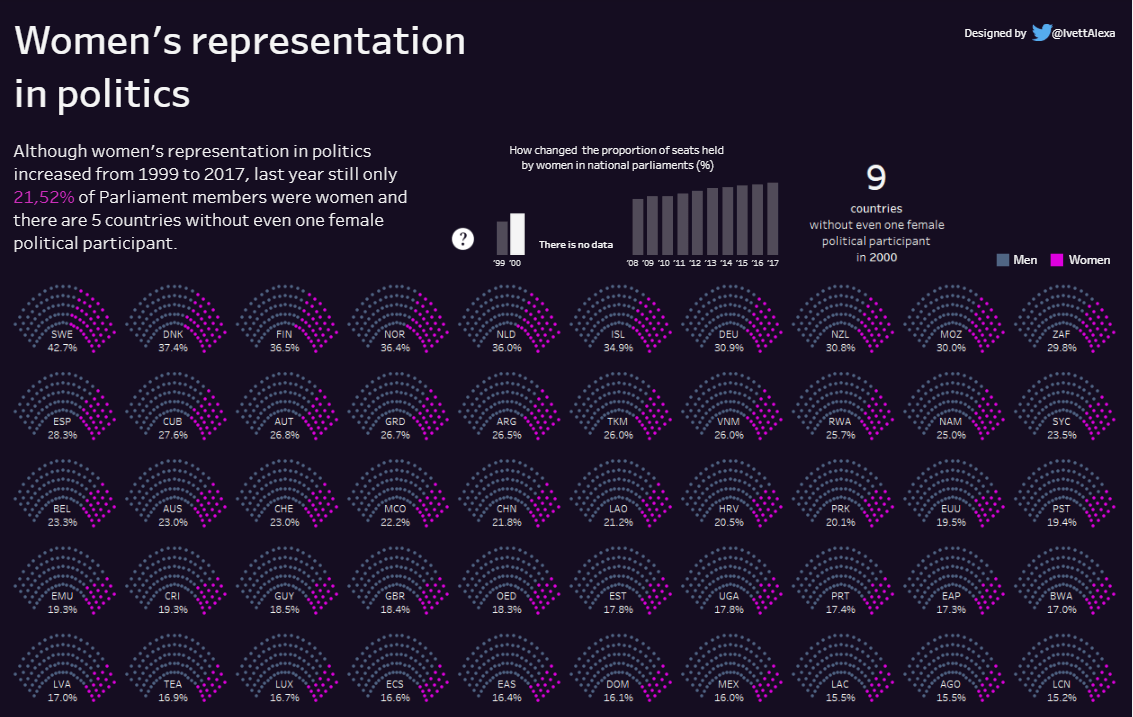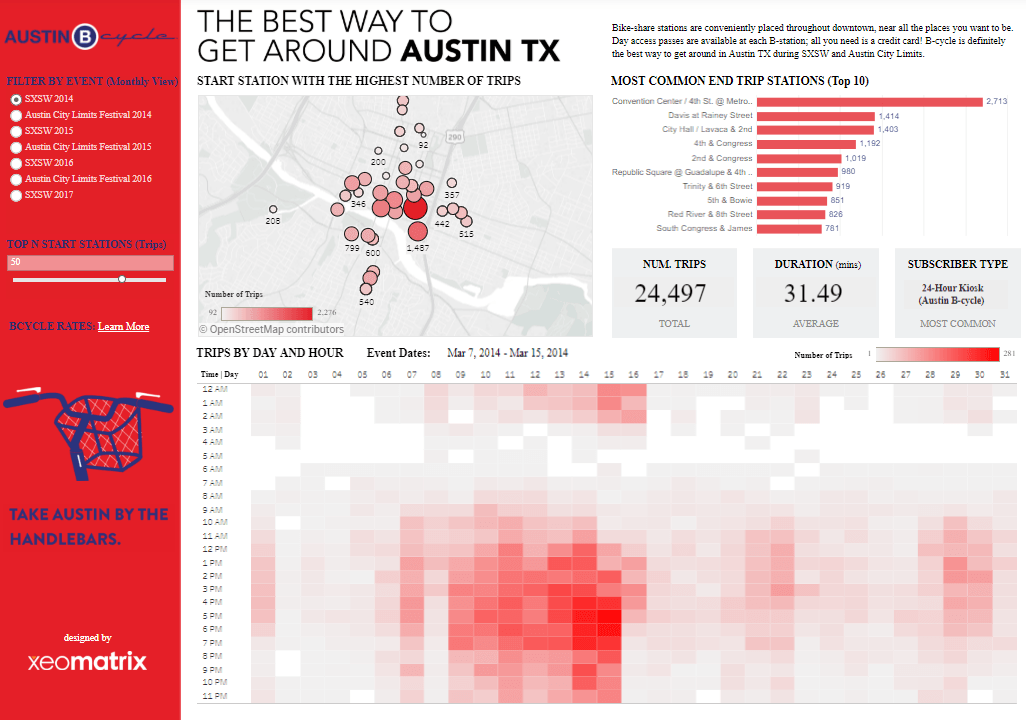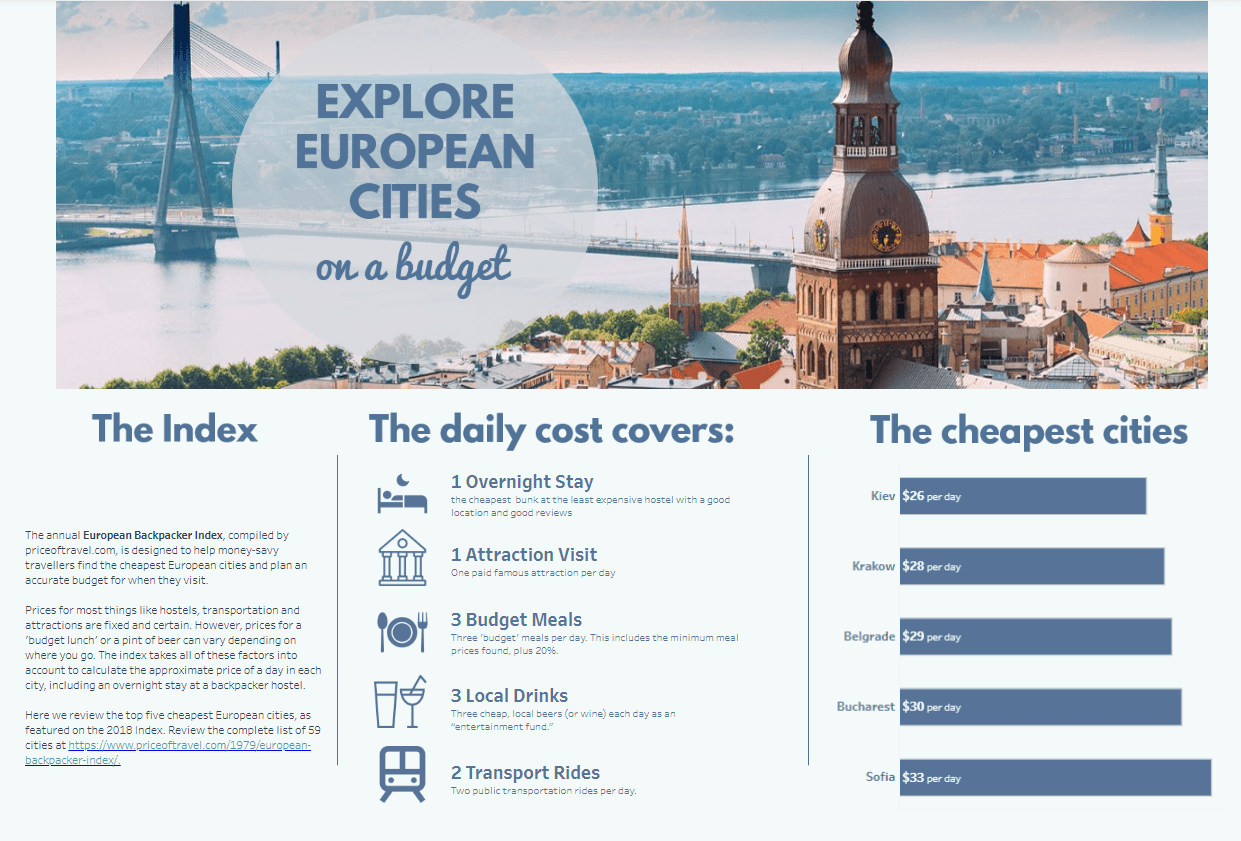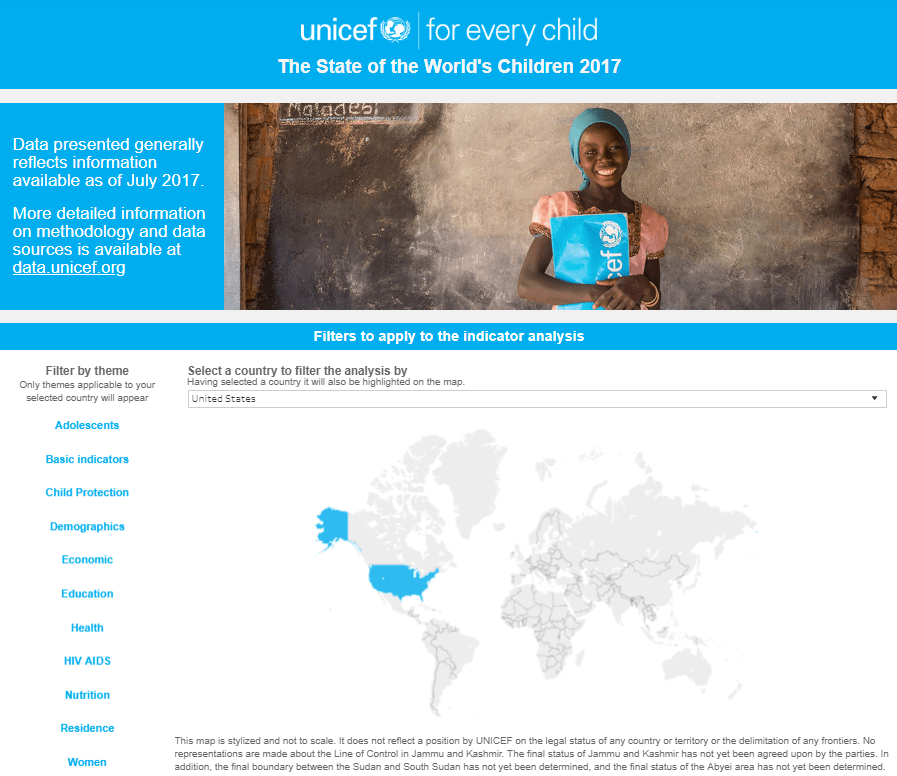Celebrating International Chart Day
Did you know that tomorrow—Thursday, April 26th, 2018—is the very first International Chart Day? We’re celebrating charts and graphs by sharing some of our favorite examples and educating the public about "the history and value of charts, and sharing insight in how to create high-quality, visually engaging, informative visualizations." It's all about data literacy, and the power of data visualization to shape our minds and our world. How cool is that!?
We’d love for you to celebrate with us!
If you happen to be in the Washington DC area, you can attend a free daytime panel or evening reception to hear from experts like Alberto Cairo and Simon Rogers. Learn more about that event and register here, and read Alberto's comments about the commemoration here. If you do manage to go, you'll likely bump into Tableau Ambassador and co-organizer of the DC Data + Women group, Brittany Fong of BFong Data. Make sure to say hi to Brittany for us.
For the rest of us outside of DC, there are other ways to get involved and participate, too. Organizers of the event are calling on everyone to share favorite charts and data visualizations on social media, tagging them with #ChartDay. As an added bonus: “If you are holding up the chart in the photo, tag it with #HumanEasel.” Cole Nussbaumer Knaflic, author of the book Storytelling With Data, is also encouraging everyone to share a visualization using the hashtag #InternationalChartDay.
Let's do the same! Share a link to one of your favorite Tableau Public visualizations, include the hashtags #ChartDay, #InternationalChartDay, or #HumanEasel, and be sure to explain why you think it's particularly effective—both at conveying information and at engaging audiences visually. Below we’ve included some of our recent favorites.
1. Women’s Representation in Politics by Yvette Kovacs
About the viz: In this viz, Yvette Kovacs of Starschema in Budapest, Hungary shows the degree to which women are represented in parliaments around the world, and how their presence has changed for each country since 2000.
What we like about it: Yvette makes powerful use of small multiples in the general shape of a parliament seating chart to convey the data clearly and beautifully. She also makes effective use of the new Viz in Tooltip feature, allowing readers to hover over each country to see a timeline of female representation.
2. The Best Way to Get Around Austin TX by Xeomatrix
About the viz: In this multi-faceted data dashboard that won Viz of the Week for Tableau Public last month, Xeomatrix shows the hotspots for bike share usage around the city of Austin, Texas at different times of the day.
What we like about it: There are many individual charts in the view, but it doesn’t feel cluttered due to minimal use of color and elegant layout. The filters for the dashboard are included on the left-hand red panel, making it easy for the reader to see how to control what’s shown.
3. Ratios of Inequity by Nai Louza
About the viz: In this hex map visualization, Nai Louza of UBS in London shows which states have the highest and lowest ratios of high-income households to low-income households.
What we like about it: This is an effective use of the hex map chart type, making it easy to see ratios for smaller states such as Rhode Island and Delaware. Also, Nai makes very effective use of annotations to call the reader’s attention to notable elements in the data, such as the highest ratio state (New Jersey) and the lowest (Puerto Rico), as well as calling out Nevada as the only state with a ratio that declined over the period in question.
4. Explore European Cities on a Budget by Sarah Bartlett
About the viz: In this infographic-style visualization that was one of the three winners of the recent European Cities Iron Viz contest, Sarah Bartlett of Slalom Consulting provides helpful information about the top five cheapest cities according to the European Backpacker Index.
What we like about it: Sarah has created a gorgeous infographic that is both visually stunning as well as informative and easy to read. The excellent graphic design and inclusion of colorful flags, stylized city maps, and useful icons makes reading this visualization a truly pleasurable experience. She provides no less than seven charts about each city, making the view full of information, but in such a way that isn’t at all overwhelming.
5. The State of the World’s Children by Simon Beaumont
About the viz: Simon Beaumont of has worked with UNICEF to visualize the data of the 2017 State of the World’s Children report.
What we like about it: A clean color palette and simple design is introduced to the reader by a beautiful photograph at the very top of the dashboard. Scrolling down, you can use this dashboard as a visual encyclopedia, looking up 167 statistics for 218 countries and areas organized into 11 different themes. You can also choose whether to compare each country with global figures or regional ones using a drop down filter that affects the reference lines in the bar chart. This visualization demonstrates how even simple bar charts can be visually appealing and informative on topics of critical importance.
Have a very happy International Chart Day!
If you'd like even more inspirational examples for engaging work, be sure to check out the Tableau Public Featured and Viz of the Day galleries, as well as the Tableau Viz Gallery. You can also learn about new visualization capabilities in Tableau 2018.1—like step and jump lines and multi-layered maps—in our announcement from earlier this week.
We'd like to say a special thanks to all the Tableau Public authors and our Tableau community around the world for all that you're doing to show what can be done with data!
関連ストーリー
Subscribe to our blog
Tableau の最新情報をメールでお知らせします













